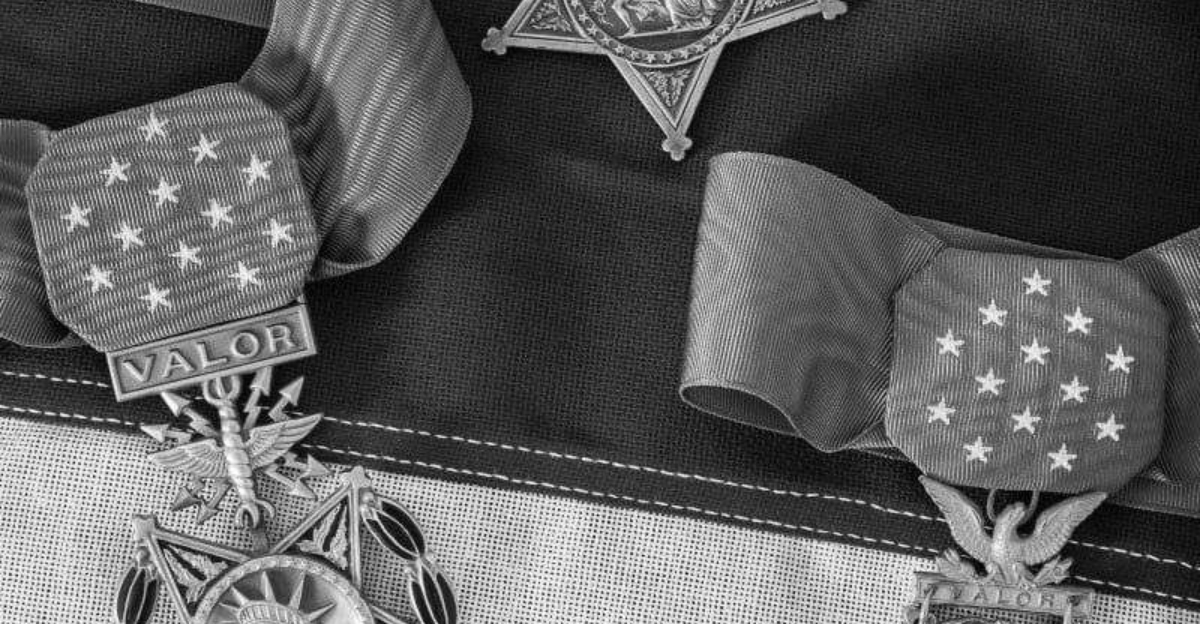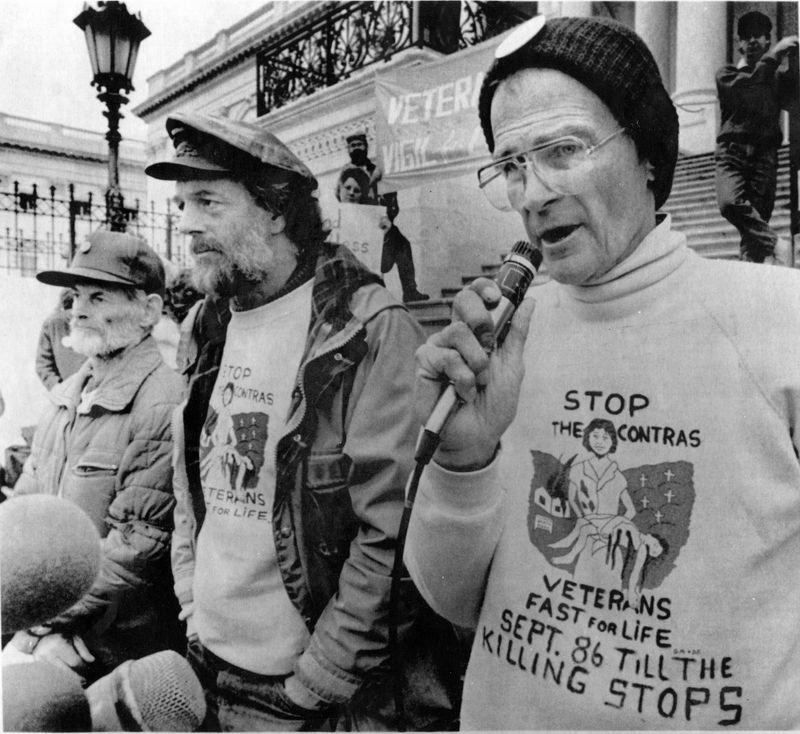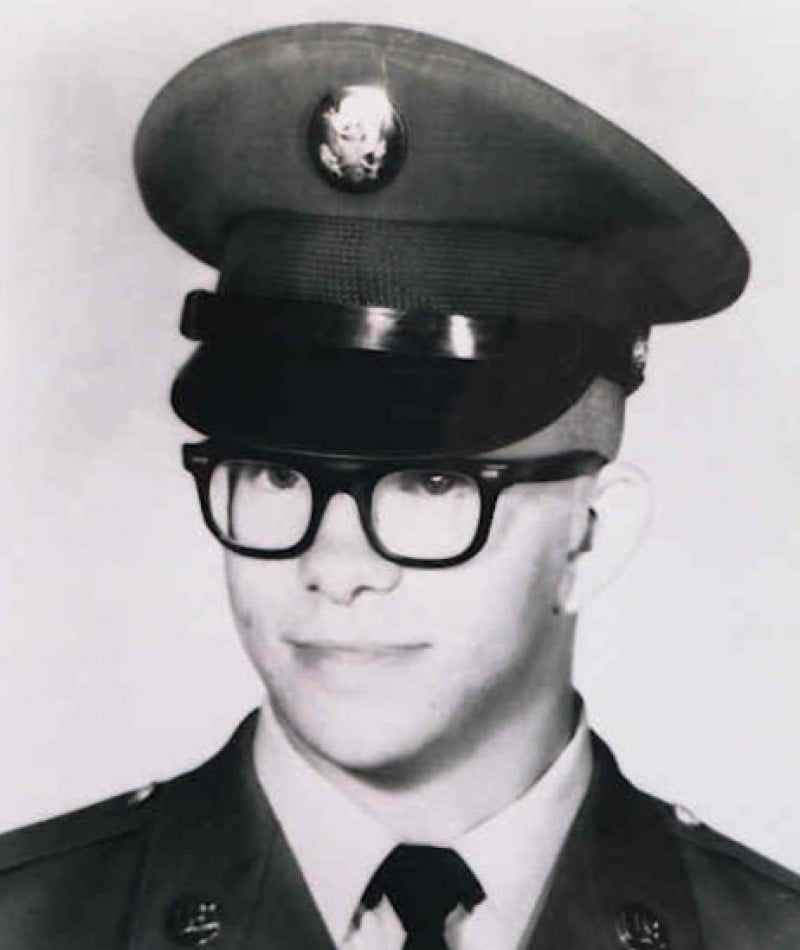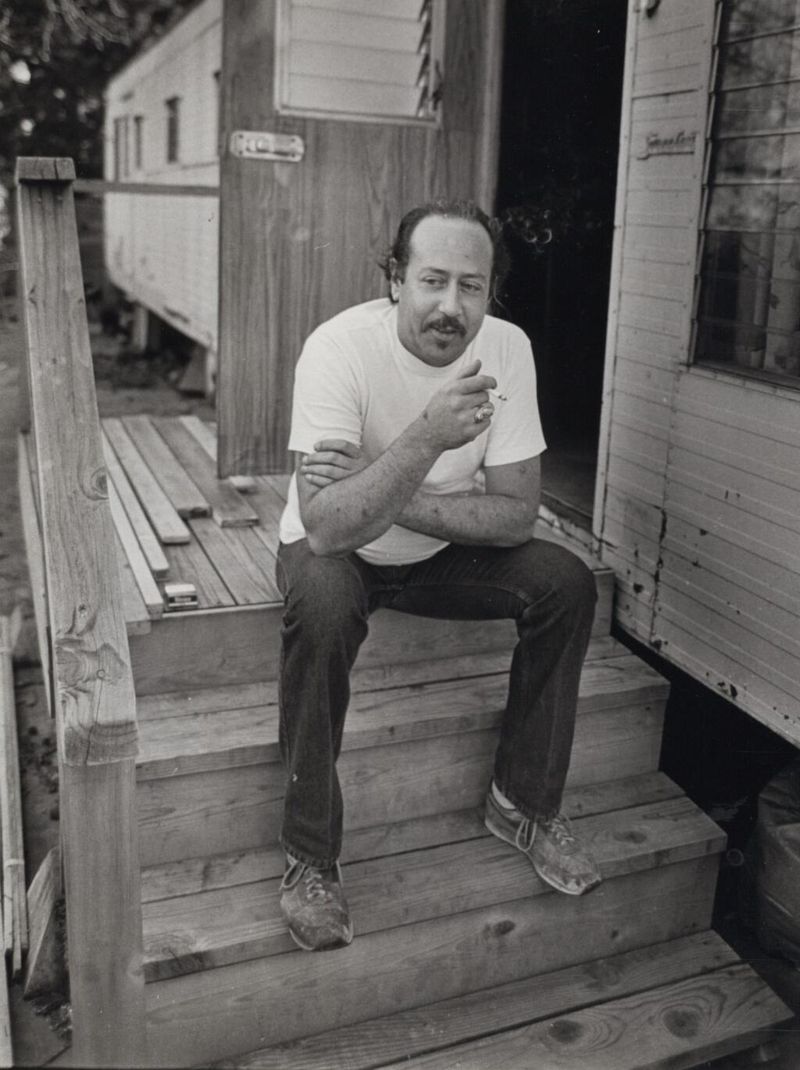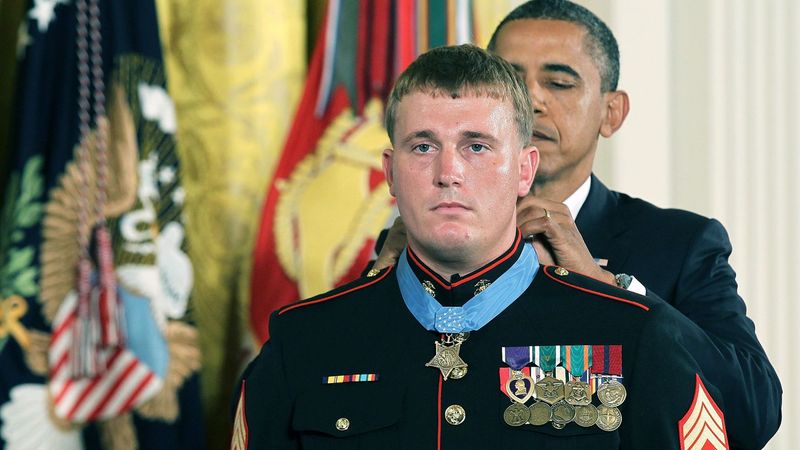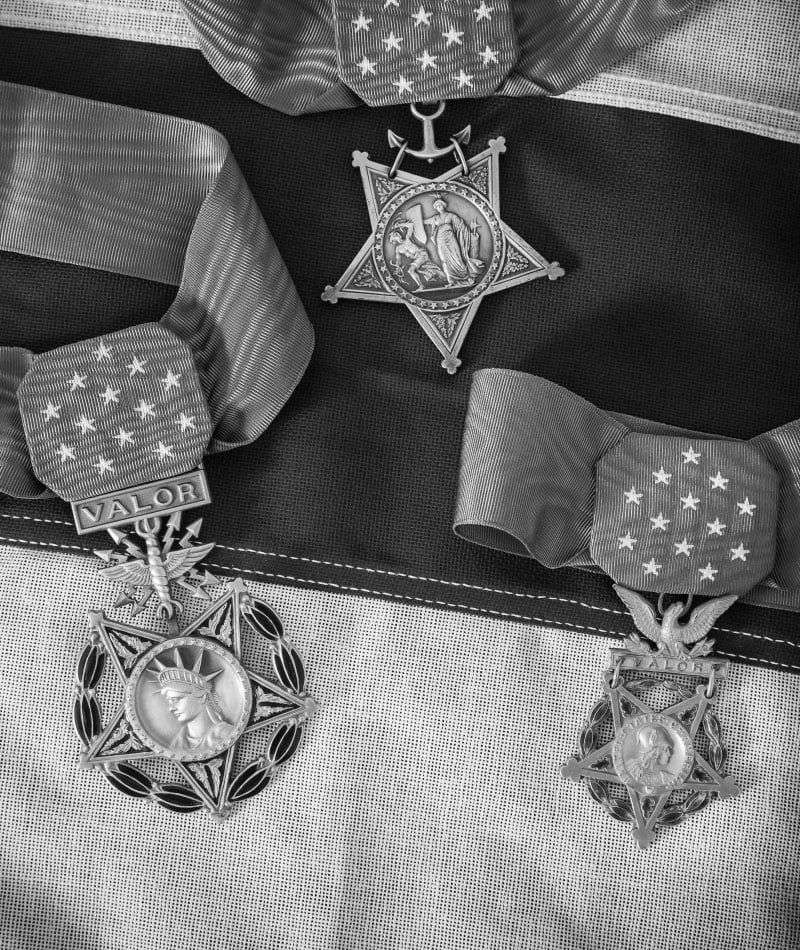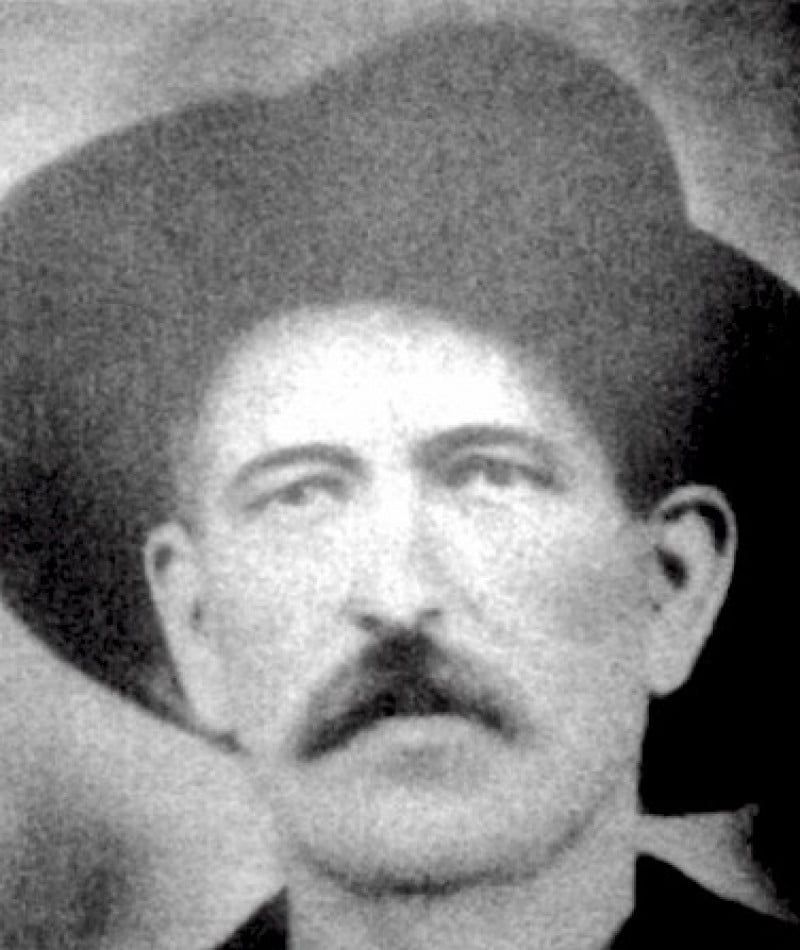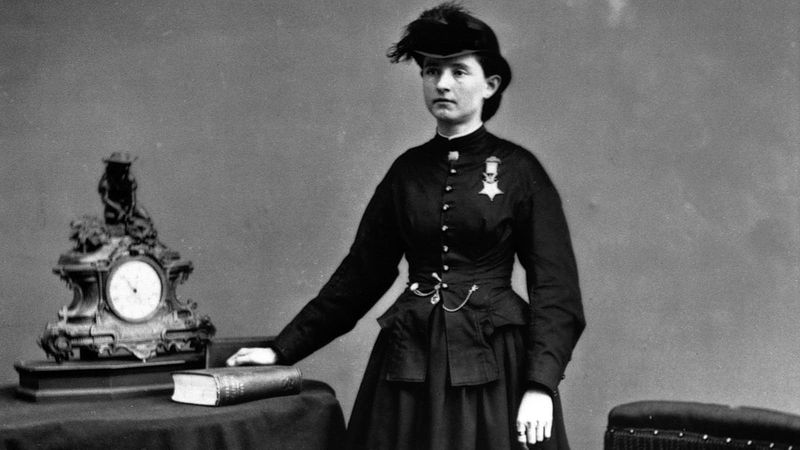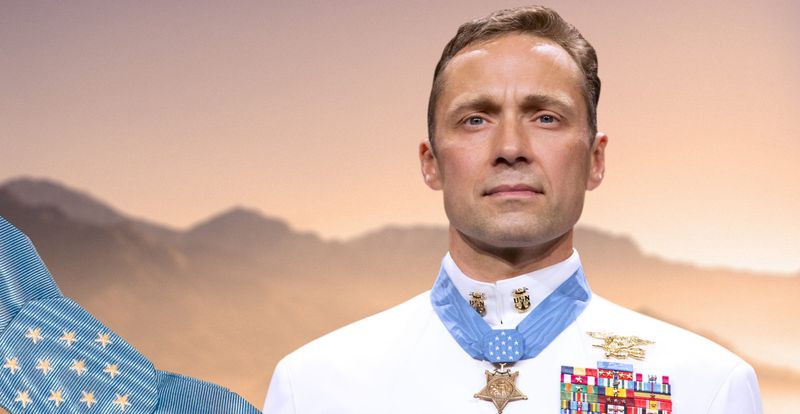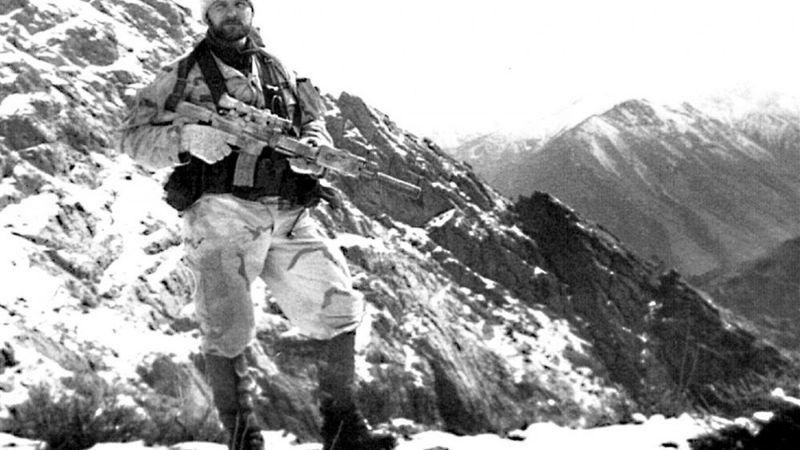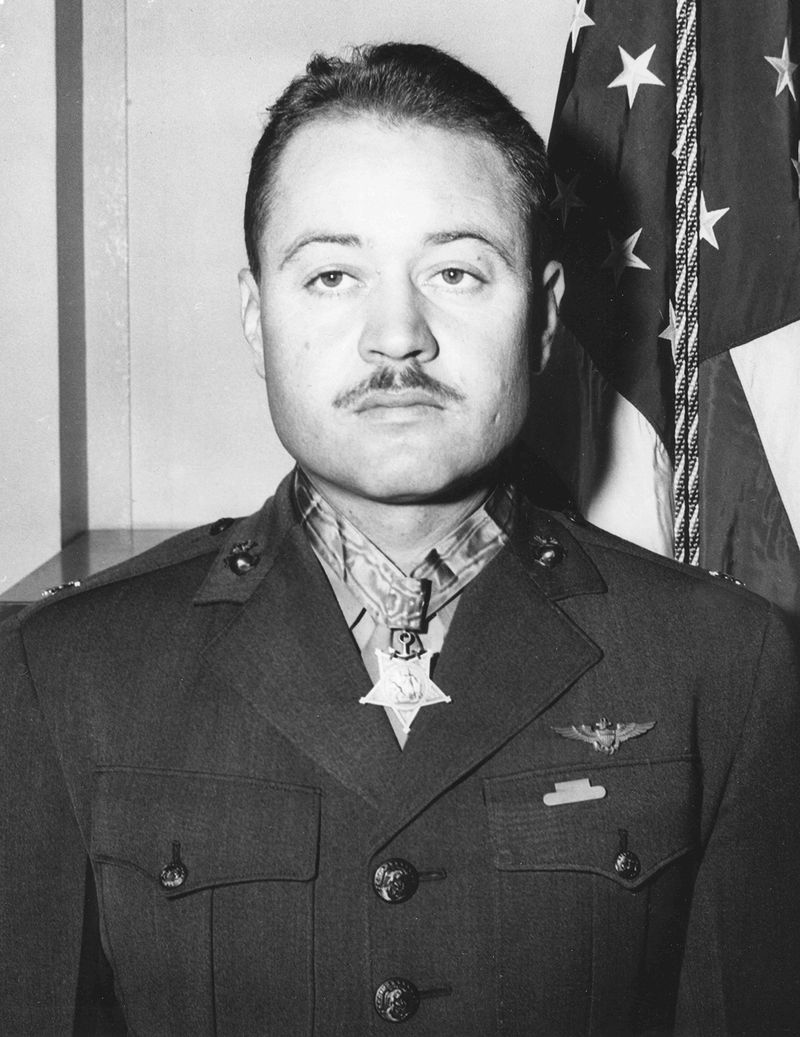Heroes earn our admiration through extraordinary acts of courage, but sometimes their stories don’t end with the medal ceremony.
Behind many decorated veterans lie complicated legacies marked by personal struggles, controversial decisions, and dramatic falls from grace.
These twelve Medal of Honor recipients show how even the most celebrated heroes can face profound challenges that transform their public image and historical significance.
1. Charles Liteky – The Medal Returner
Father Charles Liteky carried more than 20 wounded soldiers to safety under intense enemy fire in Vietnam, earning him the Medal of Honor in 1968. His transformation from military chaplain to peace activist shocked the nation.
By 1986, disillusioned with American foreign policy in Central America, Liteky made an unprecedented decision. He placed his medal at the Vietnam Veterans Memorial Wall in Washington, becoming the first and only recipient to voluntarily return the nation’s highest military honor.
Until his death in 2017, he remained committed to anti-war activism, demonstrating how profoundly a hero’s conscience can evolve.
2. Kenneth Michael Kays – The Medic’s Silent Battle
Racing through gunfire in Vietnam, combat medic Kenneth Kays shielded wounded comrades with his own body, saving eight lives despite being severely wounded himself. His 1970 Medal of Honor celebrated extraordinary battlefield courage.
Behind the medal lurked invisible wounds. Kays battled severe PTSD when few understood its devastating impact. His downward spiral into substance abuse reflected the inadequate support for veterans in the post-Vietnam era.
His 1991 suicide at age 41 stands as a stark reminder that for many heroes, the most brutal fights happen after returning home, away from public view.
3. Richard A. Penry – From Battlefield Glory to Legal Disgrace
During a fierce firefight in Vietnam, Richard Penry single-handedly eliminated multiple enemy bunkers while rescuing wounded comrades. His 1969 Medal of Honor celebrated extraordinary courage under fire that saved countless American lives.
The hero’s path took a dramatic turn in the 1970s. Federal authorities arrested Penry for selling cocaine, resulting in a conviction that shocked those who knew him only as a decorated war hero.
His story highlights the difficult transitions many veterans faced after Vietnam. Though posthumously pardoned by California in 2025 for state crimes, his federal conviction remains a permanent shadow on his military legacy.
4. Dakota Meyer – Corporate Whistleblower
Marine Sergeant Dakota Meyer charged repeatedly into a Taliban ambush in 2009, rescuing 36 fellow soldiers and recovering the bodies of fallen comrades. His extraordinary valor made him the first living Marine to receive the Medal of Honor since Vietnam.
Meyer’s post-military career took an unexpected turn when he joined defense contractor BAE Systems. He soon found himself filing a lawsuit against his employer, claiming retaliation after he objected to selling advanced weapon systems to Pakistan.
The legal battle, eventually settled out of court, revealed the complex ethical terrain veterans navigate when military service ends and corporate interests begin.
5. Chester H. West – The Tragic End
During World War I, Private Chester West crawled through vicious machine gun fire to rescue wounded comrades near Bois-de-Cheppy, France. His extraordinary bravery earned him the Medal of Honor, making him a celebrated hero upon returning home.
West’s story ended violently in 1935, not on a battlefield but at his workplace. His employer, Sam McCausland, shot and killed West during a heated personal dispute, bringing a shocking conclusion to a heroic life.
McCausland’s subsequent conviction for second-degree murder offered little consolation. West’s tragic death illustrates how even decorated heroes remain vulnerable to everyday violence long after the war ends.
6. Amos Chapman – The Civilian Scout’s Disputed Honor
Native American scout Amos Chapman displayed extraordinary courage during the Indian Wars, helping rescue a surrounded military detachment despite being shot through the leg. His actions earned him the Medal of Honor in 1875, unusual recognition for a civilian contractor.
In 1917, the government revoked Chapman’s medal during a review that determined only military personnel should receive the honor. The decision stripped away his recognition for the same brave actions once deemed worthy of the nation’s highest award.
Justice arrived posthumously in 1989 when his medal was reinstated, acknowledging that courage knows no uniform. His case illustrates how definitions of heroism shift with changing political winds.
7. Mary Edwards Walker – The Defiant Doctor
Dr. Mary Edwards Walker broke barriers as a Civil War surgeon when women weren’t allowed in medical military service. Her extraordinary courage under fire and dedication to wounded soldiers earned her the Medal of Honor in 1865—the only woman ever to receive this distinction.
Political winds shifted in 1917 when the Army revised eligibility criteria. Officials demanded Walker return her medal since she was a civilian contractor, not a soldier.
Walker famously refused, declaring, “You can have it over my dead body.” She wore it proudly until her death, and in 1977, President Jimmy Carter officially reinstated her medal, vindicating her defiance and recognizing her revolutionary contributions.
8. Britt Slabinski – The Contested Valor
Navy SEAL Senior Chief Britt Slabinski led a daring rescue mission atop a 10,000-foot Afghan mountain during Operation Anaconda in 2002. His actions during the chaotic Battle of Roberts Ridge earned him the Medal of Honor in 2018, sixteen years after the events.
The delayed recognition sparked unprecedented controversy within the special operations community. Fellow operators questioned the official account, suggesting Slabinski had abandoned Air Force Technical Sergeant John Chapman, who died fighting alone.
The dispute created a rare rift between elite units and highlighted the fog of modern warfare. Slabinski’s case demonstrates how even the most prestigious military honors can become entangled in conflicting narratives about what truly constitutes heroism.
9. John Chapman – The Posthumous Vindication
Air Force Technical Sergeant John Chapman’s final moments remained a mystery for years after he died on an Afghan mountaintop in 2002. Initially awarded the Air Force Cross, new evidence from drone footage revealed he had continued fighting alone against overwhelming odds after being left for dead.
The revelation sparked intense debate within military circles. Some questioned why it took sixteen years to recognize his sacrifice, while others wondered about the circumstances that led to him being left behind.
His posthumous Medal of Honor in 2018 made him the first airman to receive the award since Vietnam, but also highlighted the complex politics surrounding recognition of battlefield heroism.
10. William “Pappy” Boyington – The Flawed Ace
Marine fighter pilot Gregory “Pappy” Boyington shot down 28 Japanese aircraft during World War II, becoming America’s leading flying ace. His daring aerial combat and survival in a Japanese prison camp earned him both the Medal of Honor and Navy Cross.
Behind the heroic image lurked a complicated man. Boyington battled severe alcoholism throughout his post-war life, cycling through three marriages and struggling with financial problems.
His 1958 autobiography, “Baa Baa Black Sheep,” revealed his flaws alongside his heroism. Boyington’s legacy reminds us that extraordinary courage in combat doesn’t necessarily translate to success in civilian life, where different demons must be faced.
11. Edward “Babe” Heffron – From Band of Brothers to Legal Troubles
Edward “Babe” Heffron’s heroism with Easy Company during the Battle of the Bulge made him a legend, later immortalized in the HBO series “Band of Brothers.” His combat experiences from D-Day through Hitler’s Eagle’s Nest demonstrated extraordinary courage under fire.
Adjusting to civilian life proved challenging for the South Philadelphia native. Few fans of the television series know about his post-war legal troubles, including a conviction for theft that resulted in probation.
His struggles reflect the difficult transition many veterans faced after witnessing the horrors of combat. Despite these setbacks, Heffron eventually found stability, co-authoring a memoir about his wartime experiences before his death in 2013.
12. Smedley Butler – The General Who Denounced War
Major General Smedley Butler earned two Medals of Honor for extraordinary battlefield courage in different conflicts, making him one of America’s most decorated Marines. His fearless leadership in China during the Boxer Rebellion and later in Haiti cemented his reputation as a military legend.
After retirement, Butler shocked the nation by becoming one of the military’s harshest critics. His 1935 book “War Is a Racket” denounced the profit motives behind American military interventions, famously declaring: “I was a racketeer for capitalism.”
His dramatic transformation from war hero to anti-war activist created a complex legacy that continues to challenge conventional patriotic narratives about American military power and its purposes.
